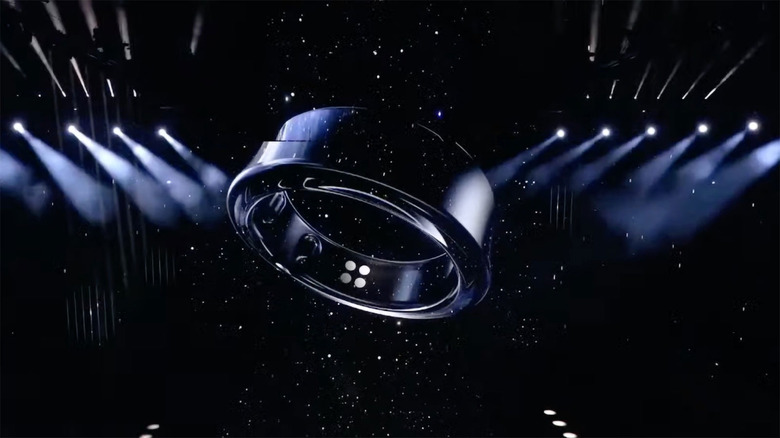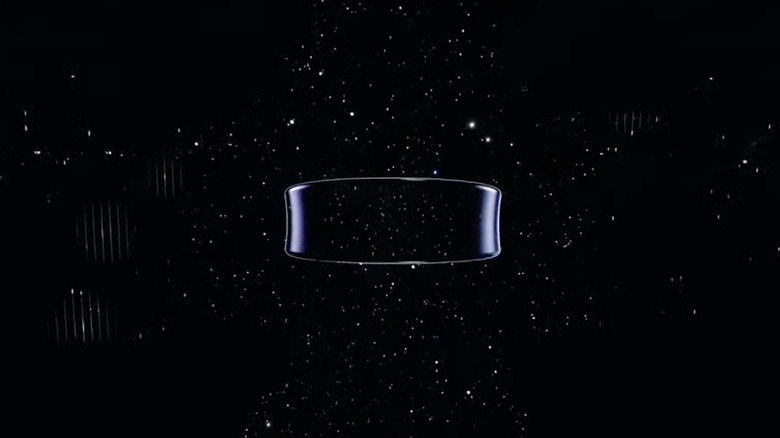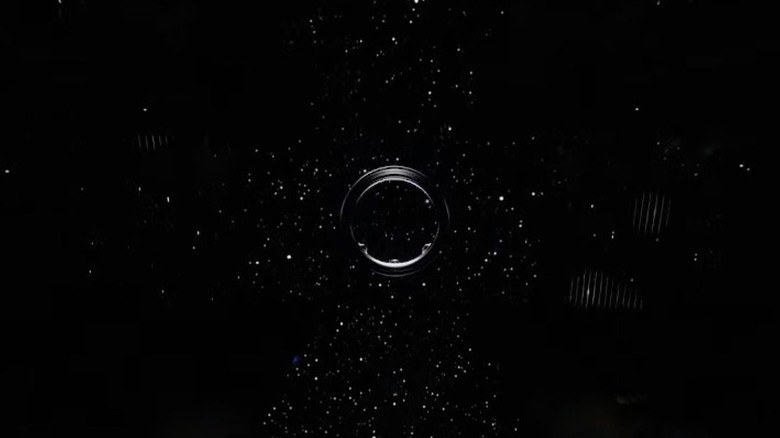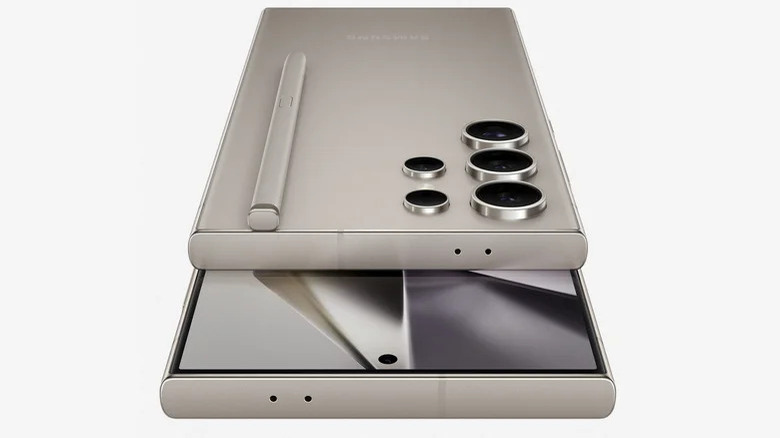Will Samsung's New Galaxy Ring Finally Make Smart Rings Take Off?
During its Galaxy Unpacked 2024 event, Samsung unveiled its upcoming Galaxy Ring, which aims to bring the company's health and wellness monitoring tech to a new form factor. Smart rings have had a notoriously hard time getting off the ground, with expanded functionality provided by smartwatches like the Fitbit, Apple Watch, and Samsung's own Galaxy Watch dominating the wearables industry. Samsung is ready to shatter the curse by developing its very own take on a smart ring, but can it pull it off?
It isn't the first time a company has attempted to revolutionize the wearables industry via a ring or bracelet. A long list of devices has promised to disrupt the market, including Smarty Ring, Fin Ring, Fujitsu's 2015 smart ring prototype, and so on. The wearables industry, in general, is a hard one to break into, with cases like Jawbone's screenless smart bracelet as an example of an abject failure. Samsung has more to bring to the table than just big promises and flashy marketing, though, thanks to its expansive and well-established device ecosystem. Will that be the key to finally making smart rings mainstream?
Samsung is leaning into its wearable tech
Before the unveiling of the Galaxy Ring, Samsung went into an overview of what it has been cooking up regarding its health and wellness monitoring technology. The company has partnered with organizations like Brigham and Women's Hospital and MIT Media Lab to develop wearable health tech, utilizing, in part, Galaxy AI to help analyze health data and provide useful insights to users. Personalized health monitoring and health coaching via the My Vitality Score feature aggregates several factors to give a simple score that will help users track progress in their desired health goals.
Currently, the Galaxy Watch has a host of wellness tracking features, including calories burnt, steps, sleep and heart monitoring, and even stress measurement. As well, in May 2023, Samsung received FDA approval to market its Irregular Heart Rhythm Notification (IHRN) functionality in the Samsung Galaxy Watch, marking a key milestone in the company's efforts (and its ability to compete with Apple on this playing field). That said, it's still up in the air as to which of those features will make their way to the Galaxy Ring.
This isn't the first time we've heard about the Galaxy Ring
It's reasonable to assume the Samsung Galaxy Ring will come in several sizes in order to fit as many consumers as possible. In fact, according to an October 2023 report from TheElec, Samsung will develop four different sizes compared to Oura's eight sizes. That leak also claimed that the Galaxy Ring's estimated release window was between Q3 of 2024 and Q1 of 2025, though Samsung hasn't confirmed any release dates and it's possible prior timeline estimates have since changed.
Though nothing was revealed about the actual functionalities of the Galaxy Ring, it's safe to assume Samsung will aim to compete with existing alternatives, in which case we can get some insights by looking at Oura's offerings. Currently, Oura's newest smart ring, the Oura Ring Generation 3, has features including heart rate monitoring, sleep monitoring, heart rate variability (HRV), and sensors that measure skin temperature and respiratory rate.
The third-gen Oura Ring starts at $299, but it's unlikely the Galaxy Ring will be as expensive. For comparison, the Samsung Galaxy Watch 6 is priced at $239.99 at the time of writing, and it's doubtful consumers will be willing to spend more on a smart ring — which has very limited functionality — than a smartwatch, which can also be used to listen to music, send messages, and other non-fitness and health-related things.
The Galaxy Ring may thrive thanks to Samsung's wider ecosystem
Samsung used this same Unpacked event to show off its newest Galaxy flagship, the Galaxy S24 series. The company's flagship phones have proven very popular over the years, and that popularity paved the way for the other consumer tech gadgets offered by the company: its smartwatches, of course, as well as its Galaxy Buds earbuds. Going all-in on one company's ecosystem is appealing for many reasons, including improved interoperability between devices from the same company and access to special features that may not be available to those who bring other companies' devices into the mix.
Apple is still the leader when it comes to walled gardens, but both Samsung and Google have taken plenty of notes. While it's questionable whether a smart ring launched independent of any wider ecosystem would achieve runaway success — the Oura is still unknown to the average consumer — its position as the latest darling within Samsung's wider catalog may give it the kind of boost the smart ring industry as a whole requires.
After all, if you already own a Samsung smartphone, a Samsung smartwatch, and Samsung earbuds, why not toss a Samsung smart ring into the mix? Especially if the South Korean company ensures there are unique features that incentivize taking that leap, though we'll have to wait to find out whether that's the case. If Samsung sees enough success with its own effort, it's all but guaranteed that other companies will follow suit in hopes of piggybacking off that achievement.



